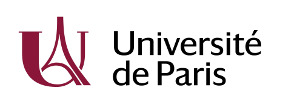Doctoral schools
PhD students of the UMR are attached to one of the following three doctoral schools.

L’École doctorale Sciences des sociétés
The ED 624 Sciences des sociétés of the University of Paris is multidisciplinary (anthropology, architecture, economics, geography, history & civilizations, political philosophy, sociology, etc.). It hosts nearly 450 PhD students working in fourteen laboratories. Founded in 2019, it is the result of the merger of the EDs of the former universities of Paris Diderot and Paris Descartes.
The project of this ED, which is common to all the disciplines of the Sciences of Society of this new merged university, is characterized by its global orientation, with all cultural domains covered, including the African, American, Asian, Oceanic and European spheres. The studies cover the current time, geared towards the critical understanding of the contemporary world in all its components, and are linked to the long-term history of societies and civilizations.
The ED’s journal, Encyclo, reflects this diversity of fields and is one of the places of confluence: it welcomes volunteers who wish to strengthen, diversify, and renew its editorial team.
The ED and the CFDIP offer complementary training beyond what you can acquire through your thesis director and laboratory.
In close association with the ED, the Collège des écoles doctorales et HDR (CED) is a pole of the University of Paris (Direction de la Recherche, de l’International, de la Valorisation et des Etudes Doctorales). Its mission is to handle the administrative aspects of the doctoral process: administrative registrations, thesis defences, funding agreement management, diploma delivery, and international mobility assistance.
The ED is organized in two departments. PhD students of the UMR Géographie-cités depend on Department 2.
- Department 1 includes seven laboratories, on the Paris-Descartes site (75006): CANTHEL, CEPED, CERLIS, Cermes3, LCSP, PHILéPOL, URMIS
Management: Laurence SIMMAT-DURAND & Marie-Anne DUJARIER (assistant) – Administrative management: Jérôme BROCHERIOU - Department 2 includes seven laboratories, on the Paris-Rives-Gauche site (75013): ANHIMA, CESSMA, EVCAU, Géographie-cités, ICT, LADYSS, LIED, PRODIG
Management: Patrick FARGES & Antoine REBERIOUX (assistant) – Administrative management: Sarah RAHMANI

L’École doctorale de l’EHESS
L’École doctorale de l’EHESS (ED 286) is a multidisciplinary training program in the social sciences that brings together 1400 doctoral students and leads to the defence of 200 theses annually. This school is highly international; 50% of PhD students are international and 13% are registered in cotutelle. The ED also benefits from the support of some thirty bilateral agreements and sixty Erasmus agreements. Approximately 150 foreign professors are invited each year to teach at EHESS.
Based on a sustained interdisciplinary dialogue between history, sociology, anthropology, economics, philosophy, geography, literary studies, the arts, and cognitive sciences, the EHESS ED includes eleven doctoral programs, several of which are thematic. This is the case for the “Territories, Migrations and Development” program, which welcomes most of the Géographie-cités doctoral students registered at EHESS.
The EHESS ED is supported by 40 research units, 37 of which are shared with the CNRS or other major institutions, and about ten of which are specialized in specific cultural regions. The heart of the program lies in the more than 500 research seminars and numerous methodological courses that allow students to follow a “tailor-made” doctoral program.

L’École doctorale de géographie de Paris (EDGP)
L’École doctorale de géographie de Paris (EDGP) is the only school in France specialized in geography and territorial sciences. It is supported by two higher education institutions: the University of Paris 1 Panthéon-Sorbonne and Sorbonne University and has also established a partnership with the National School of Architecture of Paris-La Villette. The EDGP is supported by 90 research directors and has 250 PhD students registered. Its headquarters are at the Institut de Géographie de Paris.
The EDGP is largely transdisciplinary since it is supported by 12 research units in geography, urban planning, and development, but also in demography, sociology, and architecture. It is strongly committed to the thematic renewal of the disciplines represented, while also mobilizing and disseminating savoirs of planning, development, and management of territories.
The EDGP is widely connected to European and international research networks. It encourages theses in cotutelle with foreign institutions. Its current research axes and programs are grouped into five major orientations: environment and risk, spatial systems, urban planning and development, territories and identities, and discipline-specific methodologies and instruments.


